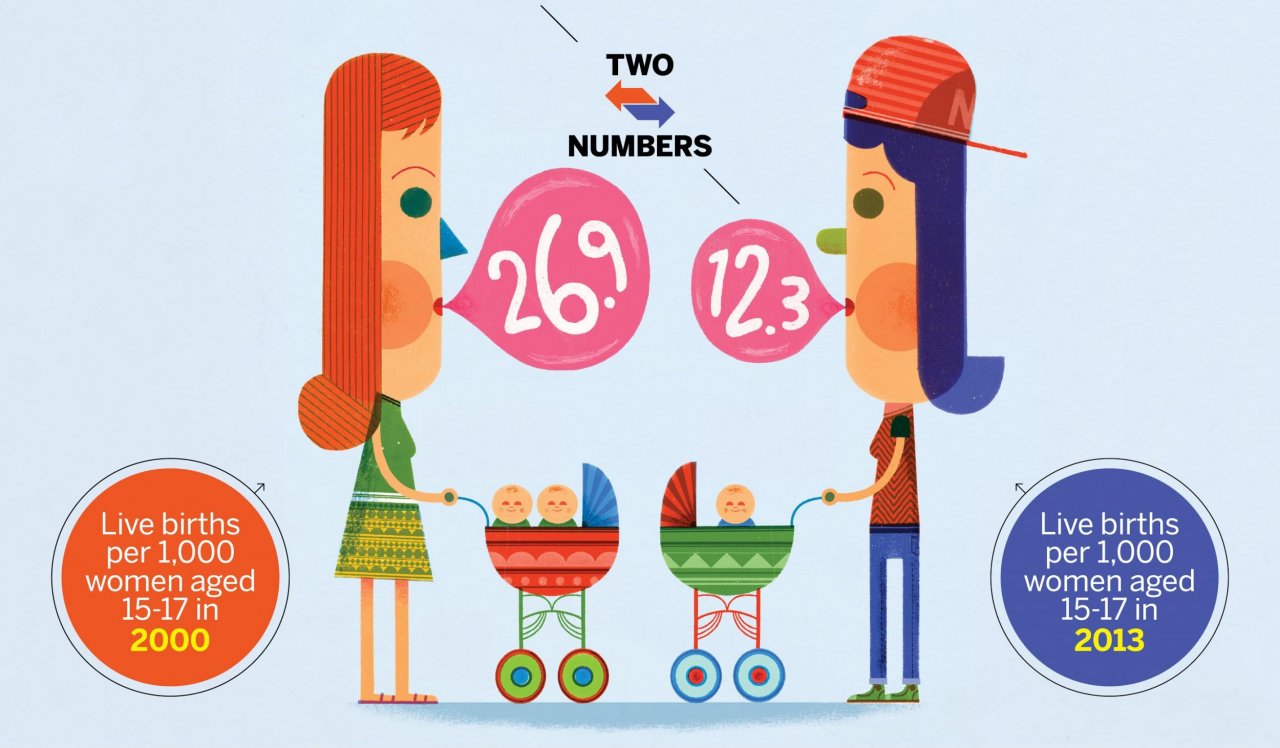Polls show that most Americans think teenage pregnancy is either as common as it used to be or more frequent. They're wrong.
Since 2000, the total teen birth rate, as defined by the number of live births per 1,000 women ages 15 to 19, has gone down by nearly 45 percent. Among 15- to 17-year-olds, that number has plummeted even further, dropping 54 percent, according a report just released by the U.S. Department of Health and Human Services and the Centers for Disease Control and Prevention (CDC).
And it looks as if that decline is accelerating. Between 2011 and 2012, the rate dropped 6 percent. But from 2012 to 2013, the latest year for which data are available, that number slipped a full 10 percent. It's now at an all-time low—as it was the year before, and the year before that.
"The historic decline in teen pregnancy and childbearing…[is] one of the nation's great success stories of the past two decades," says Bill Albert, a spokesman for the National Campaign to Prevent Teen and Unplanned Pregnancy. "I call this the greatest story never told."
One reason for the drop is that—believe it or not—youths are having less sex.
From 1991 to 2013, the number of high school students who report ever having had sex declined from 54.1 percent to 46.8 percent, says Lisa Romero, a health scientist with the CDC's division of reproductive health. They also report having fewer partners. Accordingly, their "sexual debut," as social scientists like to put it, comes later.
Most teens are also engaging in safe sex, Romero says. More than 85 percent report using some form of contraception or birth control. Albert says there are several reasons for this trend. For one, the federal government has invested in a variety of proven, science-based sex ed programs, taught at high schools around the country, that emphasize the importance of using contraceptives and the numerous difficulties caused by unintended pregnancies.
He also thinks that the recession and the continuing slow pace of economic recovery have played a part. "I'm not actually suggesting teens are checking their 401(k) before hopping into the sack," he says. But teenagers are keen observers of what's going on around them, he adds, and times of uncertainty and caution can have a "sobering effect."
He also credits several TV shows. MTV programs like 16 and Pregnant and Teen Mom show that becoming a mother before you're ready is anything but glamorous. One 2014 study by economists Melissa Kearney and Phillip Levine, from the University of Maryland and Wellesley College, respectively, concluded that these shows led to an average 5.7 decline in teen births in the 18 months after their debuts. And as Mark Regnerus, a sociologist at the University of Texas at Austin, puts it, there is a "growing conviction that teenage pregnancy can really derail a person's immediate future."





















